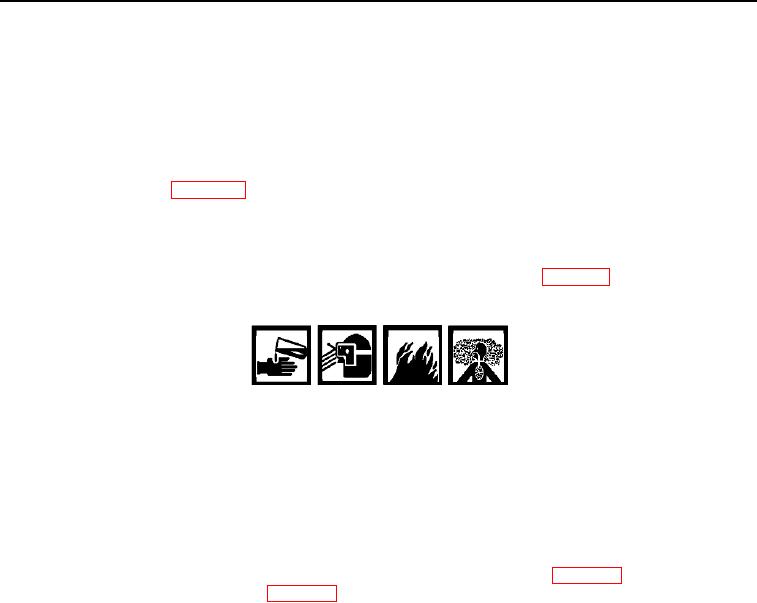
TM 5-3805-293-10
0012
GENERAL PMCS PROCEDURES
00012
1. Intervals (on-condition or hardtime) and the related manhour times are based on normal operation. The
manhour time specified is the time you need to do all the services prescribed for a particular interval. Change
the hardtime interval if your lubricants are contaminated or if you are operating the equipment under adverse
operating conditions, including longer-than-usual operating hours. The hardtime interval may be extended
during periods of low activity. If extended, adequate preservation precautions must be taken.
2. Always perform PMCS in the same order so it gets to be a habit. Once you have had some practice, you will
spot anything wrong in a hurry. If the equipment does not perform as required, refer to the appropriate trouble-
shooting procedure in Chapter 3.
3. If anything looks wrong and you cannot fix it, write it on your DA Form 2404 or DA Form 5988-E. If you find
something seriously wrong, IMMEDIATELY report it to your supervisor.
4. Before performing preventive maintenance, read all the checks required for the applicable interval and prepare
all that is needed to make all the checks. You will always need a rag (Item 17, WP 0032) or two.
WARN I N G
Solvent cleaning compound MIL-PRF-680 Type III is an environmentally compliant and
low toxic material. However, it may be irritating to the eyes and skin. Use protective gloves
and goggles. Use in well-ventilated areas. Keep away from open flames and other
sources of ignition. Failure to follow this warning may result in injury or death to personnel.
C AU T I O N
Be especially careful when cleaning electrical system components including lighting.
Damage or impaired operation could result if this caution is not observed.
a. Keep Equipment Clean. Dirt, grease, oil, and debris get in the way and may cover up a serious problem.
Clean as you work and as needed. Use solvent cleaning compound (Item 2, WP 0032) on all metal
surfaces. Use detergent (Item 4, WP 0032) and water when you clean rubber, plastic, and painted
surfaces. Spot paint as required to prevent corrosion.
b. Bolts, Nuts, and Screws. Ensure that they are not loose, missing, bent, or broken. Report loose, missing,
or damaged bolts, nuts, and screws to your supervisor.
Welds. Look for loose or chipped paint, rust, or gaps where parts are welded together. Report bad welds to
c.
your supervisor.
d. Electrical Wires and Connectors. Look for cracked or broken insulation, bare wires, and loose or broken
connectors. Report loose connections and faulty wiring to your supervisor.
e. Hoses, Lines, and Fittings. Look for wear and damage. Check for loose clamps and fittings. Report any
worn, damaged, or loose hoses, lines, and fittings to your supervisor.
0012-2

